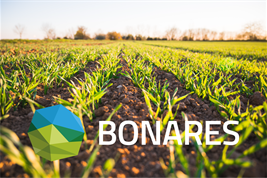03.02.2022

Soil health is an essential basis for the transformation to a resource-efficient, climate-neutral economy. About half the German land area is used for agriculture, and in addition to producing food and biomass, soils actively contribute to storing carbon from the atmosphere, host biodiversity, cool the landscape, and store excess rainfall. This multifunctionality can only be achieved with sophisticated, site-adapted soil management systems.
The BMBF-funded national research program BonaRes is developing the evidence base to better reconcile the multiple soil functions and to develop new strategies for sustainable soil management. Therein, the virtual BonaRes Center provides the scientific infrastructure and promotes the integration of ten BonaRes collaborative research projects with more than 40 participating research institutions. The BonaRes Center is coordinated by the Helmholtz Centre for Environmental Research (UFZ), and co-coordinated by the Leibniz Centre for Agricultural Landscape Research (ZALF). ZALF operates the BonaRes Repository of Soil and Agricultural Research Data, the portal for more than 400 longterm field experiments in Germany and Europe, and a platform for sustainability assessment of emerging and future soil management practices and technologies.
In the third and final funding phase, the aim is now to consolidate the infrastructures that have been built up and to transfer the methods developed into long-term use for the benefit of soil health.
Infomaterial und weiterführende Informationen:
